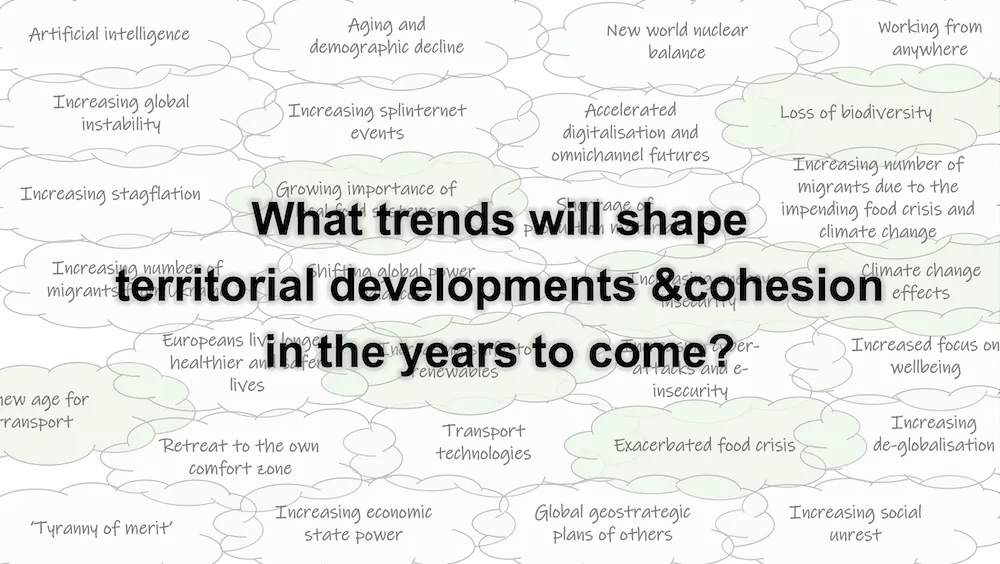Environment related trends shaping territorial cohesion
January 2023

Following up on the blog post on technological trends (Opens in a new window) shaping territorial cohesion, this blog post addresses a collection of environment related trends. The collection is based on various studies addressing mega-trends which we have conducted during 2022, e.g. for the European Parliament (Opens in a new window), the European Committee of the Regions (Opens in a new window) or ESPON (Opens in a new window). Bringing together the various pieces of trend analysis provides a rich picture about possible developments which may shape territorial development and cohesion in Europe. Therefore, we have brought them together in a series of blog posts (to be published between December 2022 and February 2023) addressing societal, technological, economic, environmental and political trends.
Trends considered to have the strongest impacts on territorial development and cohesion include exogenous technological trends (e.g. digital society, post-carbon and circular economy), social change (e.g. migration, aging, fluid social institutions and shifts in values), environment (e.g. adapting/mitigating climate change and managing scarce resources), and economic (e.g. slowbalisation, peak of everything, working from anywhere). Also political trends play an important role, both political developments in Europe, as well as those in other parts of the world which affect development prospects in Europe.
The combined picture which emerges from this suggests that future trends are likely to exacerbate spatial and societal fragmentation, interdependencies and policy mismatches. In many regards the trends point to a risk of increasing concentration on urban areas with growing territorial imbalances and inequalities, which may translate into social fragmentation and increasing discontent. This also risks to increase perceptions of uncertainty and vulnerability in a world of disruptive changes leading to ‘pervasive uncertainties’.
Environment related trends
The Anthropocene, i.e. the era where we humans are responsible for climatic changes, causes dramatic consequences for the environment. At global level, climate change has been an emerging issue for decades. The long-term impacts of climate change will change development perspectives in the decades to come, as it increases the frequency of extreme and intense events such as floods, droughts, forest fires and increased earth and sea temperatures, damaging both nature and people. Most of this has not at least been discussed in the context of the COP27 in Sharm El-Sheikh.
To read this post you'll need to become a member. Members help us fund our work to ensure we can stick around long-term.
See our plans (Opens in a new window)
Already a member? Log in (Opens in a new window)


